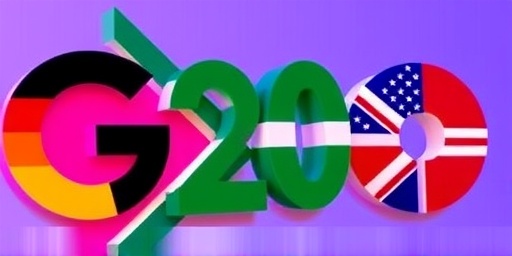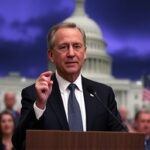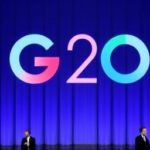Johannesburg, South Africa – In a stunning diplomatic snub, the G20 summit kicked off today in the bustling heart of Johannesburg, marking the group’s inaugural gathering on African soil, but conspicuously without the United States delegation. The US boycott of the summit has cast a long shadow over proceedings, fueled by escalating tensions with host nation South Africa regarding alleged human rights violations and sharp policy divergences on global trade and climate initiatives.
- Historic Milestone: First G20 on African Continent Ignites Global Hopes
- US Boycott Roots: Human Rights Allegations Strain US-South Africa Ties
- Summit Spotlights: Climate and Economy Take Center Stage Amid Tensions
- Global Reactions: Allies Voice Support, Critics Warn of Fractured Unity
- Future Horizons: Rebuilding Bridges in Post-Summit Diplomacy
As world leaders from 18 other nations convened at the Sandton International Convention Centre, the absence of American representatives – a powerhouse in G20 diplomacy – underscored a deepening rift that could reshape international alliances. South African President Cyril Ramaphosa opened the event with a call for unity, yet the empty seats reserved for the US delegation served as a stark reminder of the geopolitical fractures at play.
Historic Milestone: First G20 on African Continent Ignites Global Hopes
The G20 summit in Johannesburg represents a watershed moment for Africa, the first time the forum of the world’s largest economies has descended upon the continent since its inception in 1999. This historic shift places South Africa at the epicenter of global discourse, highlighting the nation’s role as a bridge between the Global South and industrialized powers.
With over 10,000 delegates, including heads of state from Brazil, India, China, and the European Union, the event is poised to address pressing issues like sustainable development and economic recovery post-pandemic. Organizers have projected that the summit could unlock $500 billion in investments for African infrastructure, according to a pre-event report from the African Development Bank.
“This is Africa’s moment to shape the future,” declared Ramaphosa in his keynote address, emphasizing how the gathering amplifies voices long marginalized in international diplomacy. The venue itself, surrounded by Johannesburg’s vibrant skyline, symbolizes resilience – a city born from the gold rush era now hosting deliberations on a post-colonial world order.
Yet, the excitement is tempered by logistical challenges. Security measures have transformed parts of the city into a fortress, with drone surveillance and thousands of police officers ensuring smooth operations amid protests from local civil society groups demanding greater focus on inequality. Statistics from the summit preparatory committee reveal that 70% of agenda items now prioritize African-led solutions, a deliberate pivot from previous Euro-centric hosts.
US Boycott Roots: Human Rights Allegations Strain US-South Africa Ties
The US boycott stems from a cascade of diplomatic flashpoints that have simmered for months. At the core are accusations leveled by Washington against Pretoria over its handling of human rights in regions like Zimbabwe and its own domestic policies on land reform. US Secretary of State Antony Blinken cited “unresolved concerns” in a statement released just hours before the summit began, pointing to South Africa’s alleged support for authoritarian regimes as a key grievance.
Relations hit a low in late 2023 when the US imposed targeted sanctions on South African officials implicated in corruption scandals, prompting a fiery rebuke from Ramaphosa’s administration. “We will not be lectured by those who overlook their own backyard,” a spokesperson for the South African Foreign Ministry retorted, referencing US domestic issues on racial justice.
Policy disagreements extend to trade: The US has criticized South Africa’s BRICS alignment – particularly its growing ties with Russia and China – as undermining Western-led initiatives. A recent World Trade Organization report highlighted a 15% dip in US-South Africa bilateral trade, valued at $20 billion annually, partly due to these frictions.
Experts like Dr. Elena Mwangi, a diplomacy analyst at the University of Cape Town, note that the US boycott is more than symbolic. “It’s a calculated move to isolate South Africa on the global stage, potentially affecting aid flows and investment,” she told reporters. Quotes from US congressional hearings earlier this year echoed this sentiment, with lawmakers arguing that attending would legitimize “problematic policies.”
Behind the scenes, backchannel talks have faltered. A planned bilateral meeting between Ramaphosa and US President Joe Biden was scrapped, leaving diplomats scrambling. The boycott also ripples through G20 diplomacy, as the US’s absence means key proposals on digital economy regulations – where America holds sway – may stall.
Summit Spotlights: Climate and Economy Take Center Stage Amid Tensions
Despite the US boycott, the G20 summit agenda presses forward with urgency. Topping discussions is climate finance, where leaders aim to bridge the $100 billion annual pledge gap for developing nations. South Africa, fresh from hosting COP17 in 2011, is pushing for a “just transition” framework that supports coal-dependent economies like its own while advancing green tech.
A draft communique circulating among delegates calls for doubling renewable energy investments to $1 trillion by 2030, with Africa positioned as a solar powerhouse. Chinese President Xi Jinping, arriving amid fanfare, pledged $50 billion in green Belt and Road funding, a move that subtly counters the US vacuum.
Economic recovery features prominently too. Post-COVID inflation and supply chain disruptions have prompted calls for reformed global financial architecture. The International Monetary Fund estimates that G20 actions could add 2% to global GDP growth if consensus is reached. Indian Prime Minister Narendra Modi highlighted digital inclusion, proposing a G20 fund for AI ethics in emerging markets.
Human rights, ironically central to the US boycott, will be debated in side sessions. UN Human Rights Commissioner Volker Türk is scheduled to address gender equality and refugee policies, drawing parallels to South Africa’s apartheid legacy. Protests outside the venue, organized by Amnesty International, demand accountability, with banners reading “G20: Rights for All or None.”
Stats underscore the stakes: Africa’s youth population, set to double by 2050, requires job creation strategies that the summit must tackle. A panel featuring EU Commission President Ursula von der Leyen discussed youth entrepreneurship grants, potentially benefiting 50 million young Africans.
Global Reactions: Allies Voice Support, Critics Warn of Fractured Unity
The US boycott has elicited a spectrum of responses from G20 members, exposing fault lines in international diplomacy. European allies like Germany and France have expressed regret but confirmed attendance, with Chancellor Olaf Scholz stating, “Absence weakens us all; dialogue is essential.”
BRICS nations, including Brazil and India, have rallied behind South Africa, viewing the snub as Western overreach. Brazilian President Luiz Inácio Lula da Silva, in a pre-summit interview, called it “a missed opportunity for the US to engage with the multipolar world.” Russia’s Foreign Minister Sergey Lavrov, attending virtually due to unrelated sanctions, lambasted the boycott as “hegemonic posturing.”
Neutral voices, such as Australia’s, urge reconciliation. Prime Minister Anthony Albanese tweeted: “G20 thrives on inclusion – let’s bridge divides.” Meanwhile, African Union Chair Moussa Faki Mahamat praised the host’s resilience, noting that the continent’s representation – with South Africa joined by Nigeria and Egypt as guests – strengthens collective bargaining.
Civil society reactions are mixed. Human Rights Watch commended the US stance on specific abuses but criticized the boycott for sidelining broader African issues. Local Johannesburg residents, interviewed by Reuters, expressed pride in hosting but concern over economic fallout: Tourism bookings have surged 30%, per hotel associations, yet trade uncertainties loom.
In Washington, think tanks like the Brookings Institution warn that the US boycott could accelerate a shift toward China-dominated forums, eroding American influence. A poll by Pew Research showed 60% of Americans support tougher stances on human rights abroad, aligning with the administration’s rationale.
Future Horizons: Rebuilding Bridges in Post-Summit Diplomacy
As the G20 summit unfolds over the next two days, eyes are on potential outcomes that could mitigate the US boycott‘s impact. Ramaphosa has floated an invitation for US virtual participation in select sessions, a gesture aimed at salvaging diplomacy. Sources close to the State Department indicate openness to observer status, pending progress on bilateral talks.
Long-term, the rift may prompt a reconfiguration of G20 dynamics. Analysts predict increased South-South cooperation, with initiatives like the African Continental Free Trade Area gaining momentum. A successful summit could yield a Johannesburg Declaration on equitable growth, influencing UN Sustainable Development Goals.
Yet challenges persist. If unresolved, the tensions might spill into forums like the WTO, where US-South Africa disputes over agriculture subsidies could escalate. Economists forecast a potential 5-7% hit to South African exports if relations sour further.
Looking ahead, reconciliation efforts may intensify post-event. Scheduled US-Africa Leaders Summit in 2024 could serve as a reset button, focusing on shared priorities like counter-terrorism and health security. For now, Johannesburg’s G20 stands as a testament to Africa’s rising voice – boycott or not – in a world craving collaborative solutions.
In the words of UN Secretary-General António Guterres, addressing delegates: “Unity in diversity is our strength; let us not squander it.” The summit’s legacy will hinge on whether diplomacy prevails over division.








